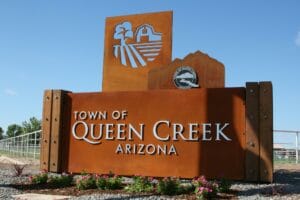By Samuel Doncaster | Rose Law Group pc
At a competitor’s request, the Arizona Court of Appeals reversed a Board of Adjustment decision permitting an owner to close a strip club and replace it with a retail business. The court did this based on a self-inflicted wound theory. It faulted a property owner for selecting the property for use as a pawnshop, and it did this despite a recent eminent domain action that severely limited the parking available onsite.
 The property was in Phoenix, zoned C-3, and it was near a residential zoning area. In a C-3 zone, a pawnshop’s exterior walls must be at least 500 feet away from a residential district. The property had previously been used as a strip club, and it had recently lost much of its parking to an eminent domain action.
The property was in Phoenix, zoned C-3, and it was near a residential zoning area. In a C-3 zone, a pawnshop’s exterior walls must be at least 500 feet away from a residential district. The property had previously been used as a strip club, and it had recently lost much of its parking to an eminent domain action.
The City of Phoenix Board of Adjustment granted a variance to permit a pawn shop on the property, and a local, competing pawn shop sued. The competitor lost in the superior court and filed an appeal. The Court of Appeals ruled in the competitor’s favor.
The Court of Appeals emphasized the Board of Adjustment has no powers other than those granted by statute. Arizona law governing the Board of Adjustment permits it to grant variances based on special circumstances, but not “if the special circumstances applicable to the property are self-imposed by the property owner.” The Court of Appeals applied the “self-imposed” prohibition broadly, focusing on the owner’s desire to seek a non-conforming use as a form of self-imposition. It did so despite a governmental eminent domain action taking most of the site’s parking, which rendered the property unsuitable for many potential uses.
This broad application of the “self-imposed” prohibition places a new weapon in the hands of incumbent competitors, who may now use land use restrictions to stifle market competition. Purchasers and developers should give extra care to zoning issues in light of this decision.
Samuel Doncaster is a senior litigator at Rose Law Group p.c., focusing his practice on real estate disputes. Feel free to reach out and discuss this article: sdoncaster@roselawgroup.com; 602-317-6449.







